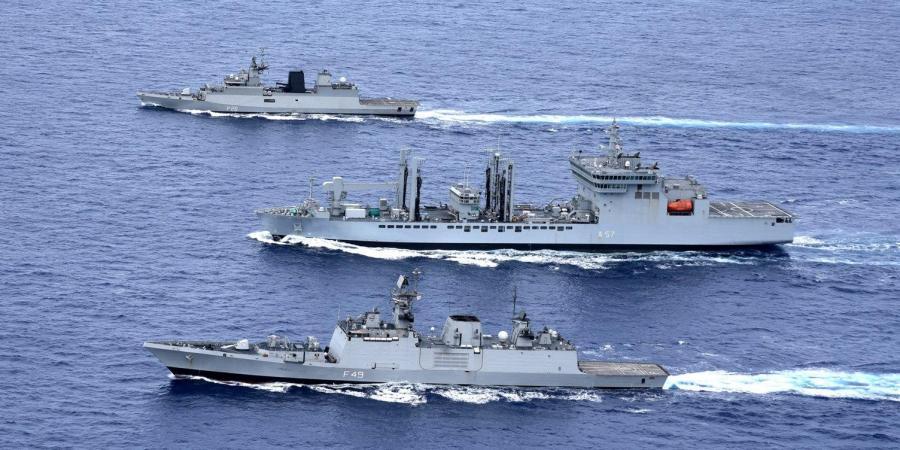India unites democracies through Malabar Naval Exercise

The 24th edition of the MALABAR naval exercise is scheduled in two phases in November 2020. Phase 1 of the Exercise MALABAR 20 involving participation by Indian Navy (IN), United States Navy (USN), Japan Maritime Self Defence Force (JMSDF), and Royal Australian Navy (RAN) commenced off Visakhapatnam in Bay of Bengal yesterday (3rd November) and will continue up to 6th November.
Phase 2 of MALABAR 20 is scheduled to be conducted in the Arabian Sea in mid-November 2020.
MALABAR series of maritime exercises commenced in 1992 as a bilateral IN-USN exercise. JMSDF joined MALABAR in 2015. The 2020 edition will now witness participation of the RAN in this joint maritime exercise.
Phase-1 of MALABAR 20 will witness participation of Indian Navy units with United States Ship (USS) John S McCain (Guided-missile destroyer), Her Majesty’s Australian Ship (HMAS) Ballarat (long range frigates) with integral MH-60 helicopter, and Japan Maritime Self Defence Ship (JMSDF) Onami (Destroyer) with integral SH-60 helicopter.
The Indian Navy participation in Phase 1 will be led by Rear Admiral Sanjay Vatsayan, Flag Officer Commanding Eastern Fleet. Indian Navy units participating in the exercise include destroyer Ranvijay, frigate Shivalik, Off Shore Patrol Vessel Sukanya, Fleet Support Ship Shakti and submarine Sindhuraj. In addition, Advanced Jet Trainer Hawk, long-range maritime patrol aircraft P-8I, Dornier maritime patrol aircraft, and helicopters will also be participating in the exercise.
The exercise, being conducted as a ‘non-contact, at sea only’ exercise in view of COVID-19 pandemic, will showcase the high-levels of synergy and coordination between the friendly navies, which is based on their shared values and commitment to an open, inclusive Indo-Pacific and a rules-based international order. MALABAR 20 Phase1 would witness complex and advanced naval exercises including surface, anti-submarine and anti-air warfare operations, cross deck flying, seamanship evolutions and weapon firing exercises.
Importantly, for the first time in over a decade, the exercise will see the participation of all four Quad countries. In a statement last month, the Defence Ministry had said that “as India seeks to increase cooperation with other countries in the maritime security domain and in the light of increased defence cooperation with Australia, Malabar 2020 will see the participation of the Australian Navy”.
This will be the second time Australia will participate. In 2007, there were two Malabar Exercises. The first was held off Okinawa island of Japan in the Western Pacific — the first time the exercise was held away from Indian shores — and the second in September 2007, off Visakhapatnam, with the Indian, Japanese, US, Australian and Singapore navies.
The following year, Australia stopped participating under what is widely agreed the Chinese-pressure. The pressure was as much on India as on Australia. Japan became a regular participant only in 2015, making it a trilateral annual exercise since then.
It is said that the exercise has made China, rapidly turning out to be an expansionist power, “nervous”. China has always viewed the Malabar exercise with suspicion. But then, China’s muscle-flexing in the Indo-Pacific region in recent years has raised concerns from Japan and the US, primarily in the East and South China Seas. This has prompted both the US and Japan to explore the ways to build a maritime security infrastructure in the Indo-Pacific region to contain Chinese expansion programme, which has gained momentum under Xi Jinping. This is why the Quad has a major roadblock to Xi Jinping’s China. Australia is also upset wit China over its mishandling of Covid-19 virus and its attempts at interfering in the domestic politics of Australia. That explains why Australian Defence Minister Linda Reynolds said recently that the Malabar exercise would showcase the shared will of the four major Indo-Pacific democracies to work together on common security interests.


